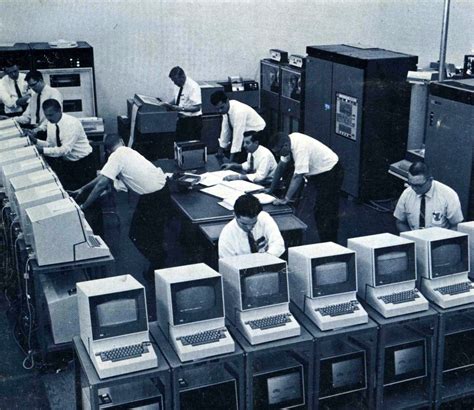The world of computers is a vast and fascinating field that has revolutionized the way we live, work, and communicate. From the earliest mechanical computers to the modern-day supercomputers, the journey of computer technology has been nothing short of remarkable. In this article, we will delve into five interesting facts about computers that highlight their evolution, impact, and some of the lesser-known aspects of these machines.
Introduction to Computers and Their Evolution

Computers have come a long way since the invention of the first mechanical computer, Charles Babbage’s Difference Engine, in the early 19th century. The evolution of computers has been marked by significant milestones, including the development of the first electronic computer, ENIAC, in the 1940s, and the invention of the microprocessor in the 1970s. Today, computers are an integral part of our daily lives, from smartphones and laptops to servers and supercomputers.
Key Points
- The first computer bug was an actual insect that got stuck in the Harvard Mark II computer.
- The world's fastest computer, as of 2022, is the Frontier supercomputer, which can perform over 1 exaflop.
- The first computer mouse was made of wood and had only one button.
- The first computer virus, known as the "Creeper system," was discovered in 1971.
- The average lifespan of a computer is around 5-7 years, depending on usage and maintenance.
The First Computer Bug
The term “computer bug” is often used to describe any glitch or error in a computer system. However, the first computer bug was actually an insect that got stuck in the Harvard Mark II computer in 1947. The operators were trying to debug the system when they found the moth, which they taped to the computer log with the note “First actual case of bug being found.” This incident marked the beginning of the use of the term “bug” to describe technical issues in computers.
Supercomputers and Their Capabilities

Supercomputers are the most powerful computers in the world, capable of performing complex calculations and simulations at incredibly high speeds. The Frontier supercomputer, for example, can perform over 1 exaflop, which is equivalent to 1 billion billion calculations per second. Supercomputers are used in a variety of fields, including weather forecasting, scientific research, and national security.
| Computer Type | Speed |
|---|---|
| Smartphone | Up to 10 GHz |
| Laptop | Up to 5 GHz |
| Server | Up to 20 GHz |
| Supercomputer | Over 1 exaflop |

The Evolution of Computer Input Devices
Computer input devices have come a long way since the invention of the first keyboard. The first computer mouse, for example, was made of wood and had only one button. It was invented in the 1960s by Douglas Engelbart and his team at Stanford Research Institute. Today, we have a wide range of input devices, including touchscreens, voice assistants, and gesture recognition systems.
The Impact of Computers on Society
Computers have had a profound impact on society, transforming the way we communicate, work, and entertain ourselves. The internet, which was first developed in the 1960s, has enabled global communication and access to information. Social media platforms, online shopping, and streaming services have become an integral part of our daily lives. However, the increasing reliance on computers has also raised concerns about privacy, security, and the digital divide.
What is the average lifespan of a computer?
+The average lifespan of a computer is around 5-7 years, depending on usage and maintenance. Factors such as processor speed, memory, and storage capacity can affect the lifespan of a computer.
What is the fastest computer in the world?
+The fastest computer in the world, as of 2022, is the Frontier supercomputer, which can perform over 1 exaflop. It is used for scientific research and simulations, such as weather forecasting and materials science.
What is the first computer virus?
+The first computer virus, known as the "Creeper system," was discovered in 1971. It was a self-replicating program that displayed the message "I'm the creeper, catch me if you can!" on the screen.
In conclusion, computers have revolutionized the way we live, work, and communicate. From the first mechanical computers to the modern-day supercomputers, the journey of computer technology has been marked by significant milestones and innovations. As we continue to develop and rely on computers, it is essential to consider their impact on society and the environment, and to ensure that their benefits are accessible to all.

